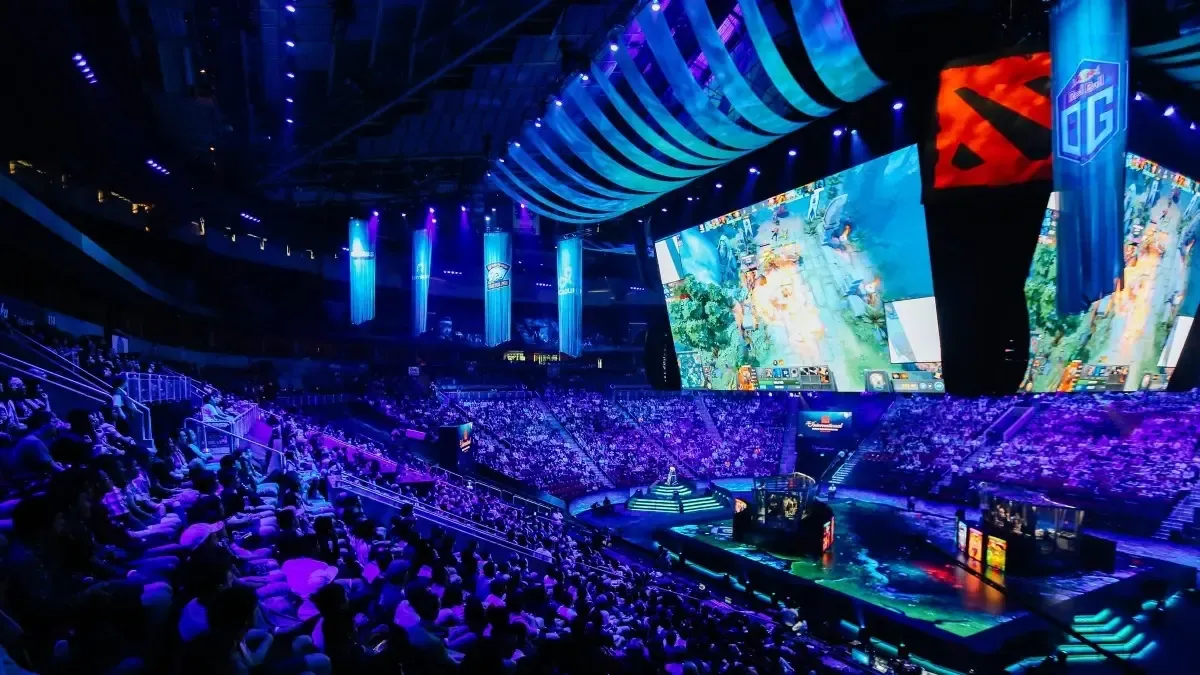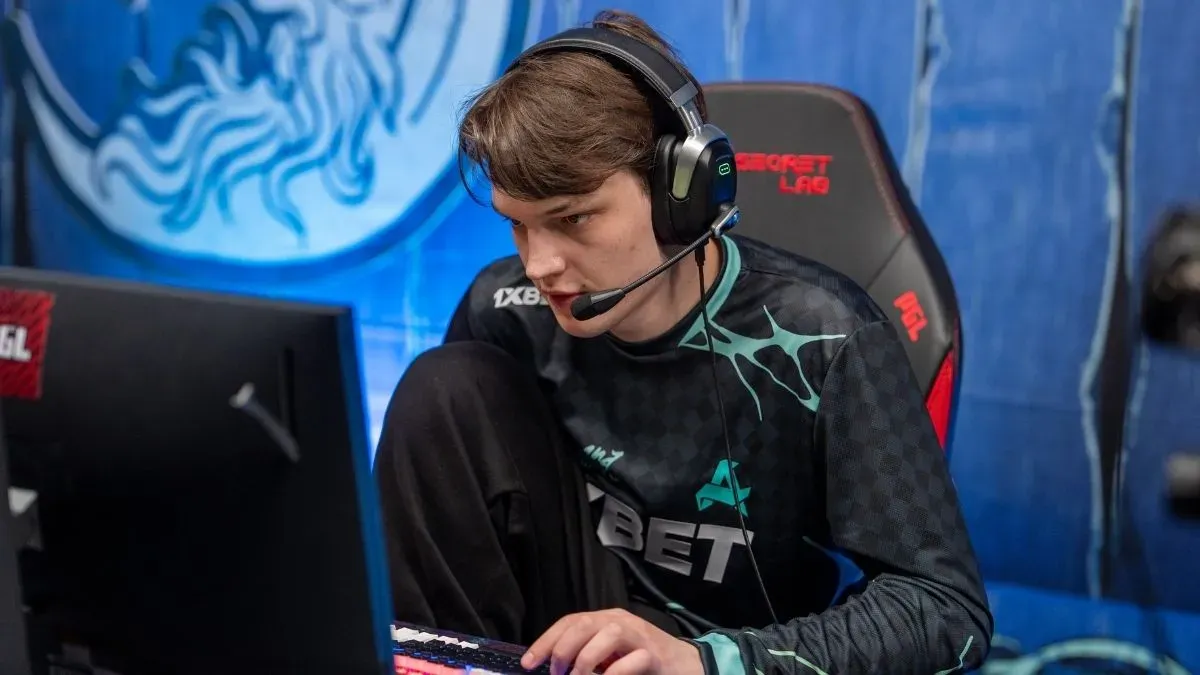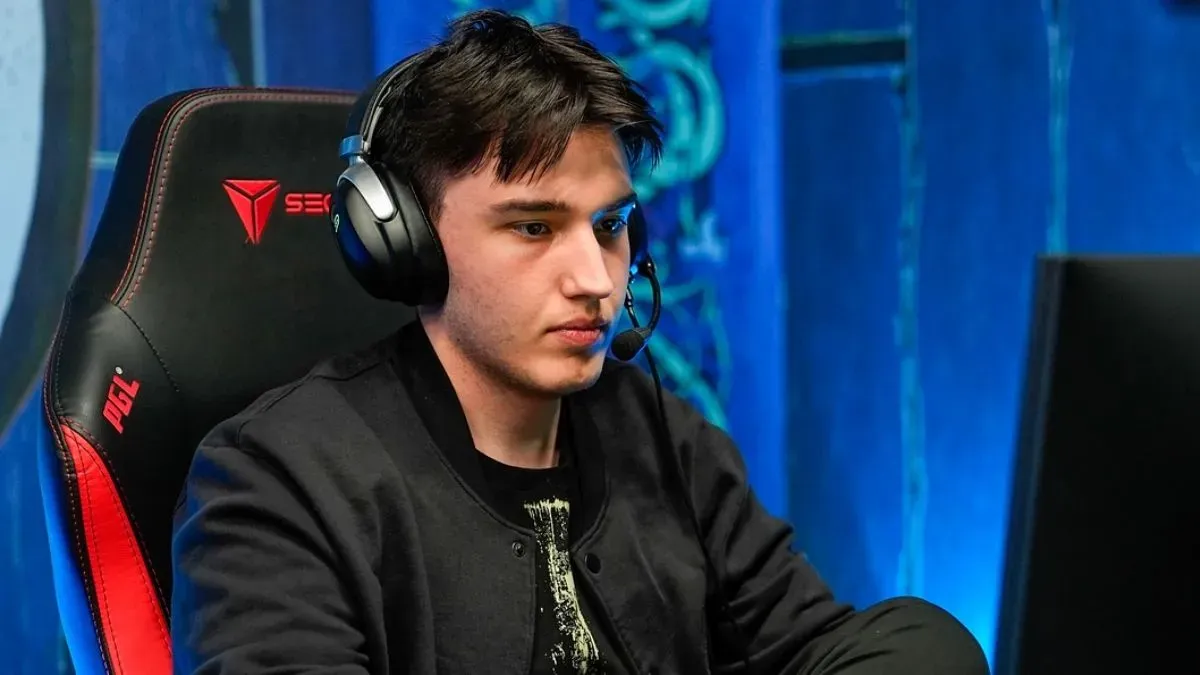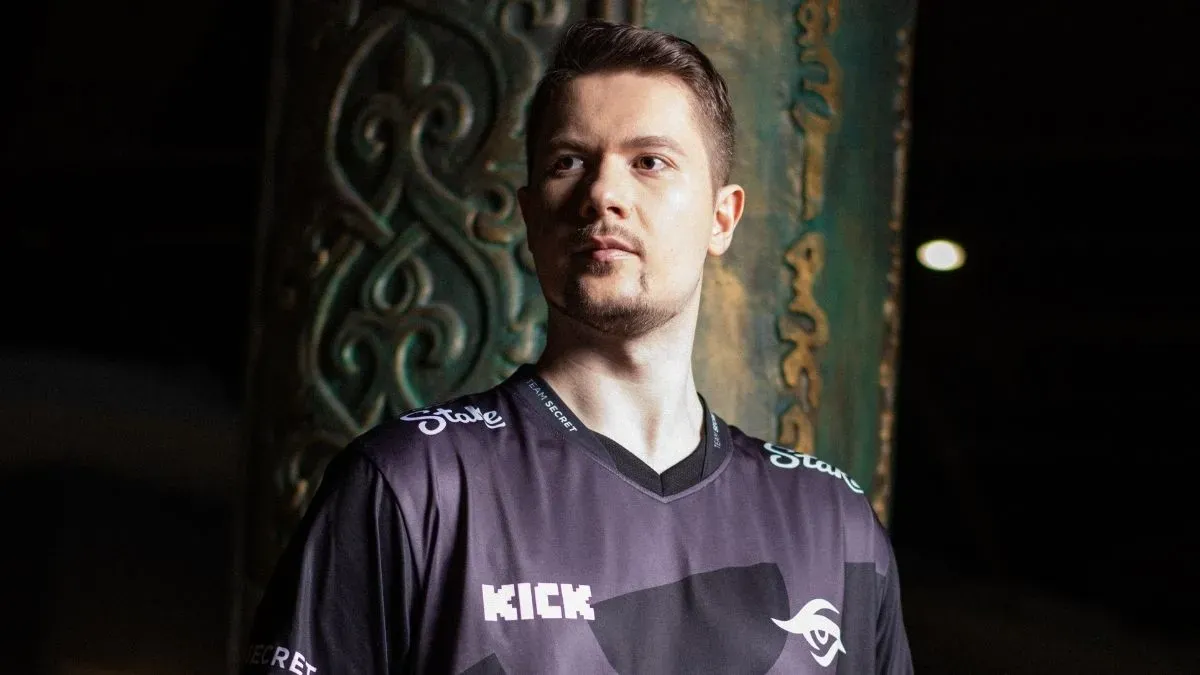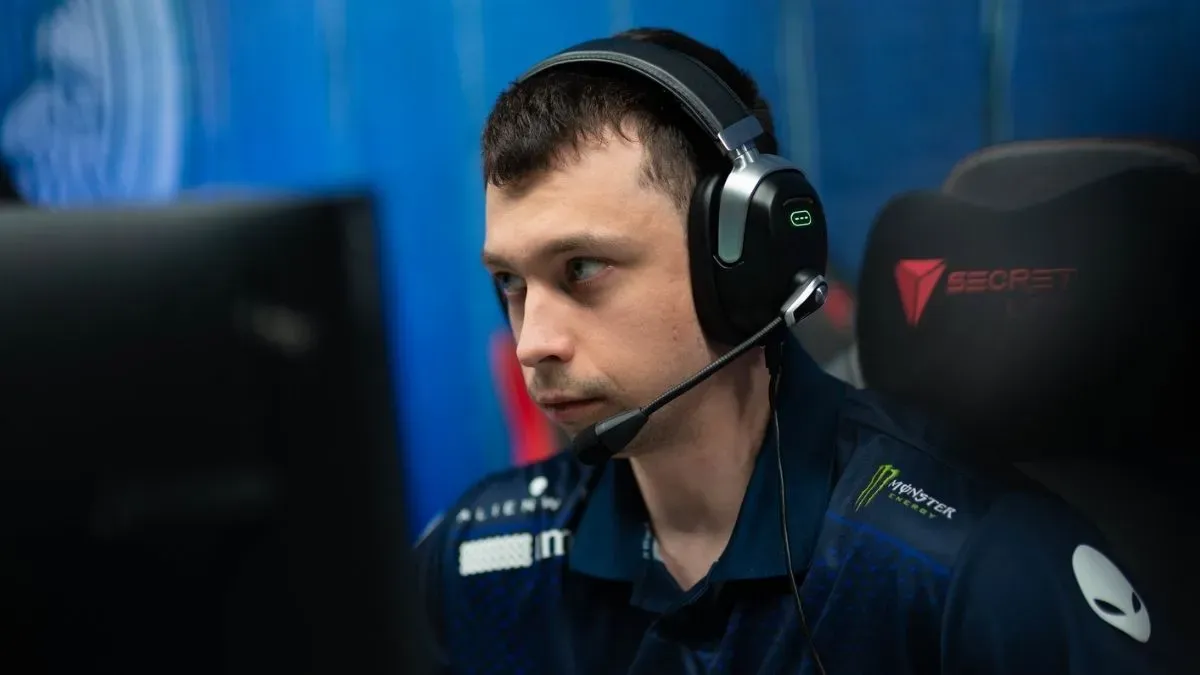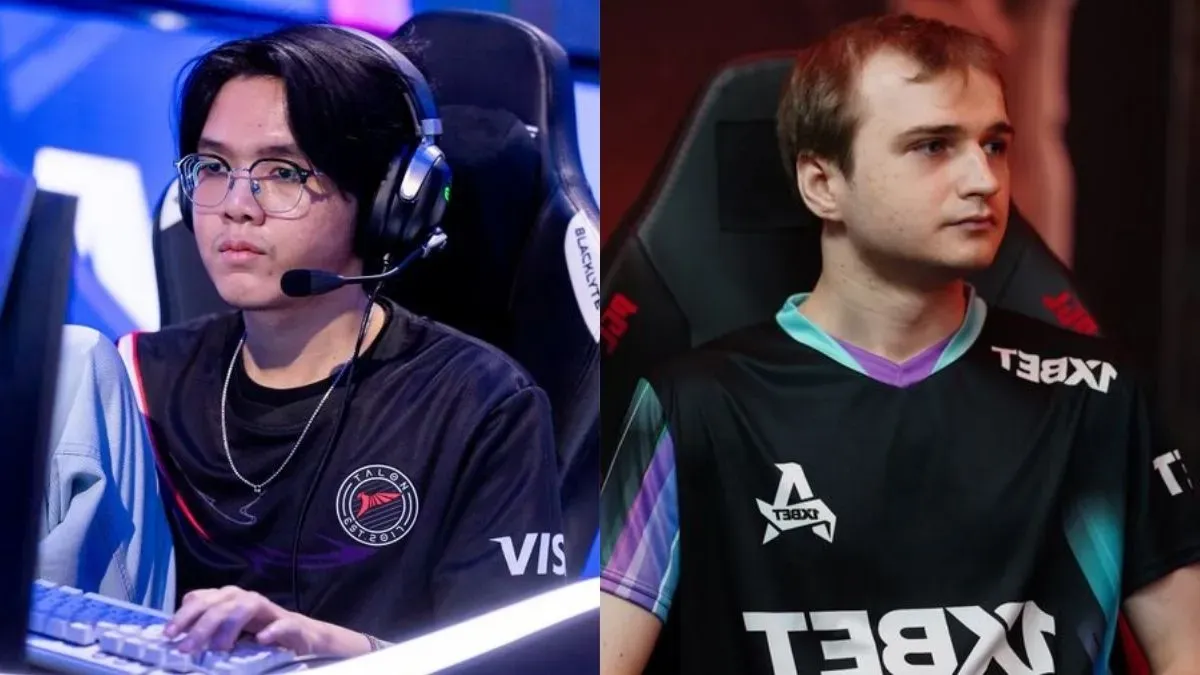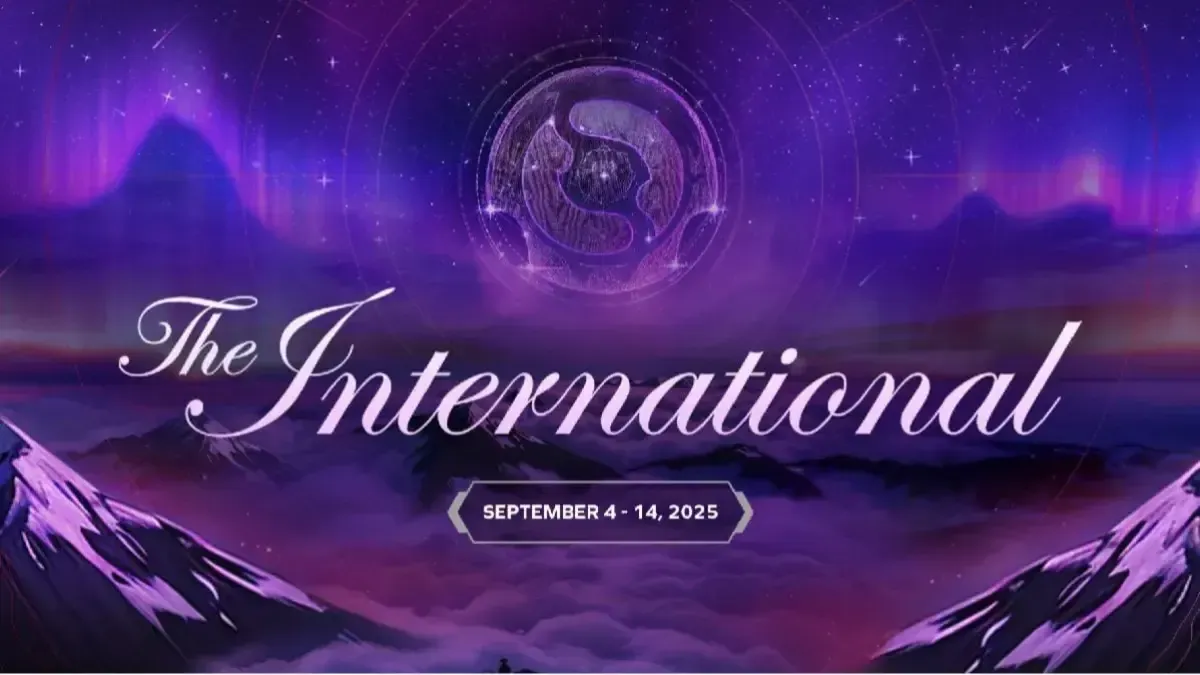OG's CEO claims rampant region-hopping undermines Dota 2's long-standing regional qualifier system.
The regional qualifiers for The International (TI) 2025, this year's Dota 2 world championship tournament, concluded earlier this week to determine the 16 teams that will be fighting for the Aegis of Champions in Hamburg, Germany in September.
But while most discourse during the TI qualifiers centered on which teams would end up making it to TI, one noteworthy issue was the influx of Eastern European (EEU) organisations that region-hopped to compete in Western Europe instead. This was a result of EEU only having one TI regional qualifier slot after three teams from the region already received direct invites. Not only that, there was a visibly more opportunistic route in WEU as all of its strongest teams were directly invited to the world championship.
Notable EEU teams like  Virtus.pro,
Virtus.pro,  Natus Vincere (NAVI) Junior,
Natus Vincere (NAVI) Junior,  1win, and
1win, and  Yellow Submarine not only signed up for the WEU open qualifiers but also made it into the closed round, leading to EEU teams making up half the field in the WEU qualifier.
Yellow Submarine not only signed up for the WEU open qualifiers but also made it into the closed round, leading to EEU teams making up half the field in the WEU qualifier.
In an exclusive interview with GosuGamers ahead of TI 2025's WEU regional qualifier,  OG CEO Daniel Sanders shared his thoughts on the rampant practice of region-hopping in the TI WEU qualifier and their exchange with organiser PGL.
OG CEO Daniel Sanders shared his thoughts on the rampant practice of region-hopping in the TI WEU qualifier and their exchange with organiser PGL.
Sanders acknowledged upfront that the topic could be sensitive, given that OG were one of the participating teams, but he remained adamant that region-hopping undermines the long-standing regional qualifier system for Dota 2.
“I don't want this to be perceived as something we're only raising because maybe we qualify, maybe we don't–it shouldn't be related to us and our position at all. We just genuinely believe it needs to be addressed.
It just makes a mockery of the system when this is happening. It undermines why [regional qualifiers] exist in the first place. And if this is intended, then that's fine. But then, I do not see the point in having regional splits. Just make it a European qualifier.”
Sanders raises concerns over unchecked region-hopping
Region-switching in Dota 2 isn’t exactly a new phenomenon. For instance, CIS team  B8 moved to compete in North America in January 2023, presumably in search of better opportunities to climb the ranks. However, the practice has become far more widespread this year, even extending to the qualifiers of the two biggest tournaments of the season.
B8 moved to compete in North America in January 2023, presumably in search of better opportunities to climb the ranks. However, the practice has become far more widespread this year, even extending to the qualifiers of the two biggest tournaments of the season.
EEU team, Virtus.pro was seen competing in the MESWA (Middle East and Southwest Asia) region for the qualifiers of the Esports World Cup 2025's Dota 2 tournament. Days later, the team positioned itself in WEU to qualify for the year’s TI.
Sanders drew comparisons to other titles, particularly those OG competes in, to highlight the disparity in how rules and regional regulations when it comes to region-hopping are enforced in Dota 2.
If we look at many other games, for instance Counter-Strike, which is obviously a Valve game, it is managed very strictly with regard to this matter. In other games–with the titles we're in–the eligibility of players for regional qualifiers is about their location, to make sure that it's a protected system for local talent.
But if we look at how [the rules] are currently being–let's call it–exploited, for lack of a better word, because of what can only be described as a loophole in the way it's being managed, we can see that it could have a really damaging and lasting effect.”
The potential harm of unregulated region-hopping
OG’s CEO expressed that his biggest concern with unregulated region-hopping–and teams being able to pick and choose their battleground–is the negative impact on grassroots development and local talent growth.
“It can consolidate the talent at the top and limit any potential routes for new orgs or new players to come through. Because at the end of the day, what opportunities do the local teams have to pick up players and make their way to one of the biggest tournaments in the world, if then, major teams from other regions are just going to come and crowd them out? It just goes against what we believe is the whole principle of why (open qualifiers) have always existed.”
The importance of a healthy open qualifier system resonates deeply with OG’s legacy. The iconic team made esports history by qualifying for TI 2018 through the open qualifiers, going on to win the championship, and remarkably securing a back-to-back title the following year–all after an internal fallout.
“We as a Dota-first org just want what's best for Dota and the community and to help the health of the ecosystem - and open qualifiers have always been a really important part of that. The philosophy has always been to provide a pathway for regional and local talent, where there's an opportunity for them to make it to the biggest stage, and that's been some of the most powerful stories we've seen in Dota. I come from a background where allowing local talent and people to have their time in the spotlight is always a really good thing. And that's what we want to try and protect.”
OG reached out to PGL over confusing rules
According to Sanders, OG along with several other teams privately reached out to the organiser, PGL, seeking clarity on the ruleset and how casual region-switching was being permitted, particularly in such a high-stakes qualifier. However, the response they received was underwhelming and only raised more unanswered questions.
“PGL basically explained that the way the rule is interpreted, it means that the players of these teams just have to play their games in the region that they want to qualify from. So, for instance, in this case, all of the teams from Eastern Europe cannot be invited to a Western European qualifier, but they're welcome to qualify through open qualifiers, and they have to play their games in Western Europe.”
The PGL ruleset states that at least three players on a team must be based in a region to compete there–a guideline Sanders finds frustratingly vague and open to interpretation.
“In any normal setting–in any legal setting, in other games–to be based in a region would imply they are a national of that region or they live in that region. That's what we see as obvious and logical. But the way the rule is being used is that they just have to play there.
But how are you actually controlling that rule? How are we validating teams are playing from the region they're saying they're playing in?
There's no evidence to say a team is playing from where they say they're playing. It just raises more and more questions, because we have absolutely no idea how it's being handled.”
Sanders believes that the subtle ruleset is what needs to be changed or made more transparent moving forward. He also expressed an understanding of why teams choose to switch regions and exploit the loophole, given what’s at stake in Dota 2’s most prestigious tournament, and clarified that the issue stems from a flaw in the rules.
“It can be very easily cleared up with a language change if that's what's intended. But leaving it open to interpretation is what has made it a very confusing situation.
If I was an organization and that was what the rule maybe suggested I could do, we would probably look at the same thing because of the importance of TI and what it brings to an organization, right? But we just believe [the ruleset is] something that needs to be absolutely crystal clear as to why it exists and how we move forward.”
Hopes for transparency and better communication
Ultimately, Sanders and the rest of OG are calling for better communication from Valve and PGL–and for key community figures to be included in the decision-making process when establishing rulesets and policies.
“What we would obviously love to do–and Valve is also a part of this conversation, as it is ultimately their ruleset – is to have an opportunity for not just OG, but organizations, to have a dialogue with the organizers so we can all provide feedback and input as to what works for us as teams and what is best for the community, because we're part of it.
At the end of the day, we just want what's best for the community and what's best for Dota and we try to stand up for that no matter what. And the only real way that we can address [these issues] is either through mediums like this or just having a dialogue with people who make the decisions. And that is the part that's lacking. That's the part that we really want to encourage, to just to be a part of conversations to help support the growth of Dota.”
While over half of the teams in the WEU regional qualifier were from EEU, only one of them ended up making it to TI 2025. NAVI Junior defeated OG in the qualifier's upper bracket finals to claim the first of two spots in TI 2025.  Nigma Galaxy then became the last team to qualify for TI 2025 after defeating OG in the lower bracket finals. While Nigma Galaxy is considered a WEU team despite being based in the United Arab Emirates, the team is also known for competing in MESWA qualifiers if a given event has one.
Nigma Galaxy then became the last team to qualify for TI 2025 after defeating OG in the lower bracket finals. While Nigma Galaxy is considered a WEU team despite being based in the United Arab Emirates, the team is also known for competing in MESWA qualifiers if a given event has one.

For Dota 2 match results and updates on the go, don't forget to check out our Telegram channel.

